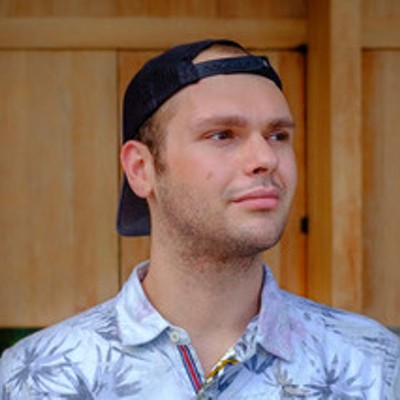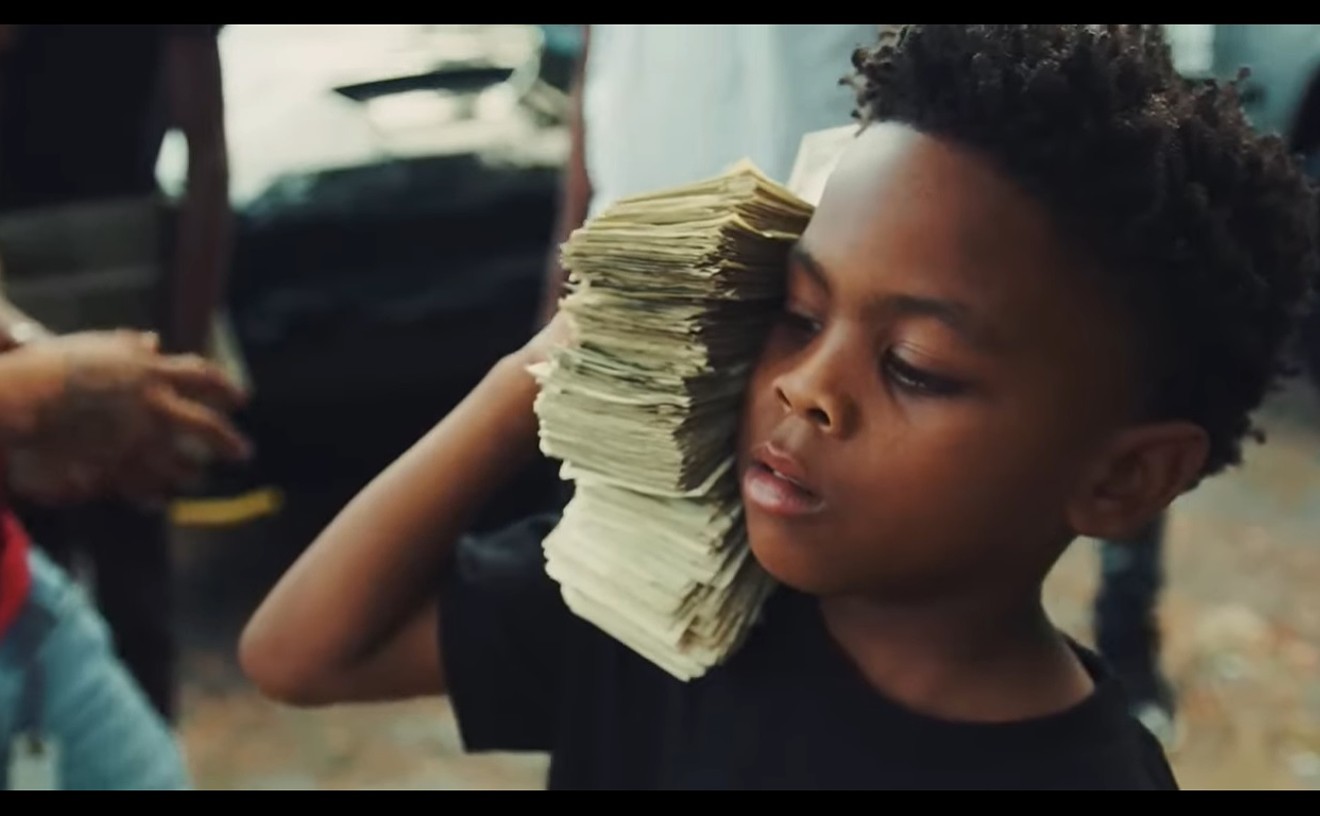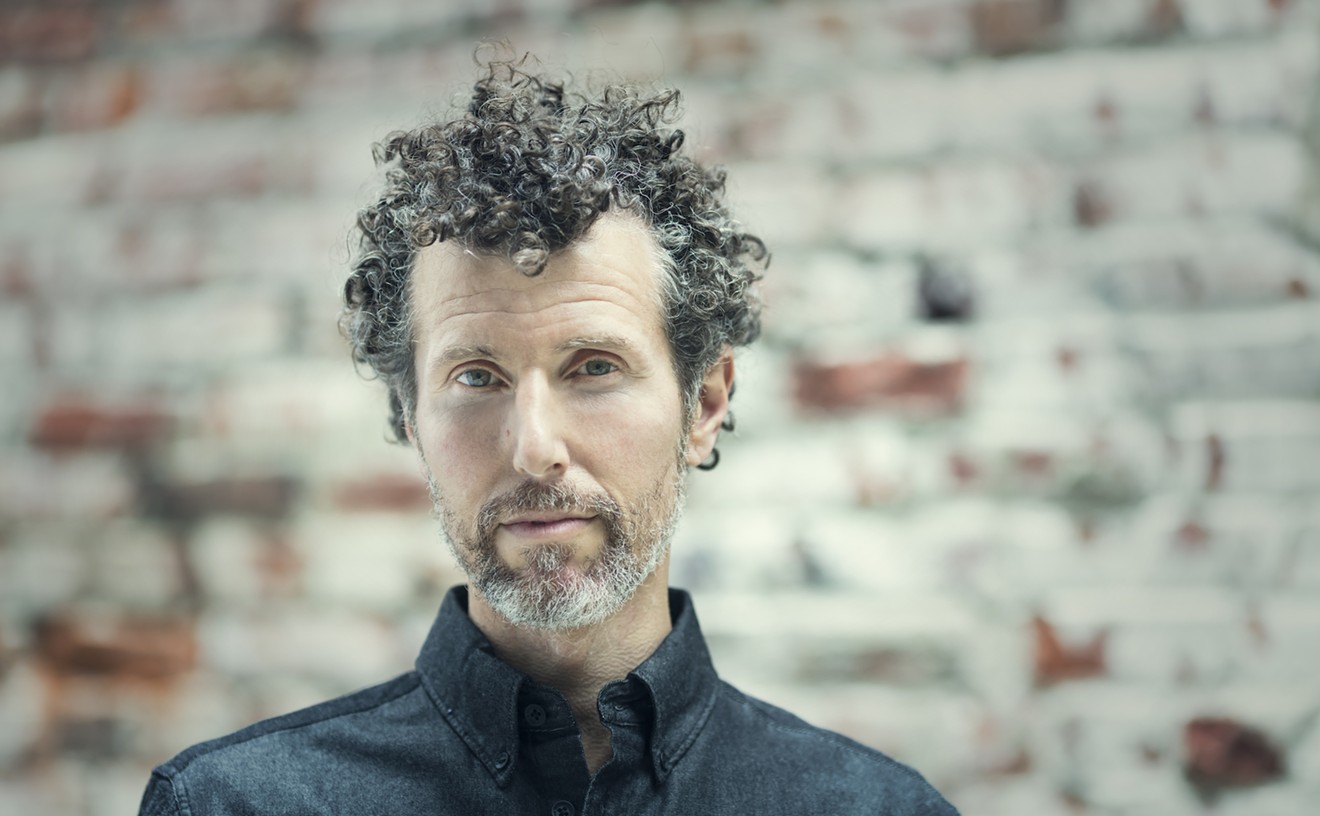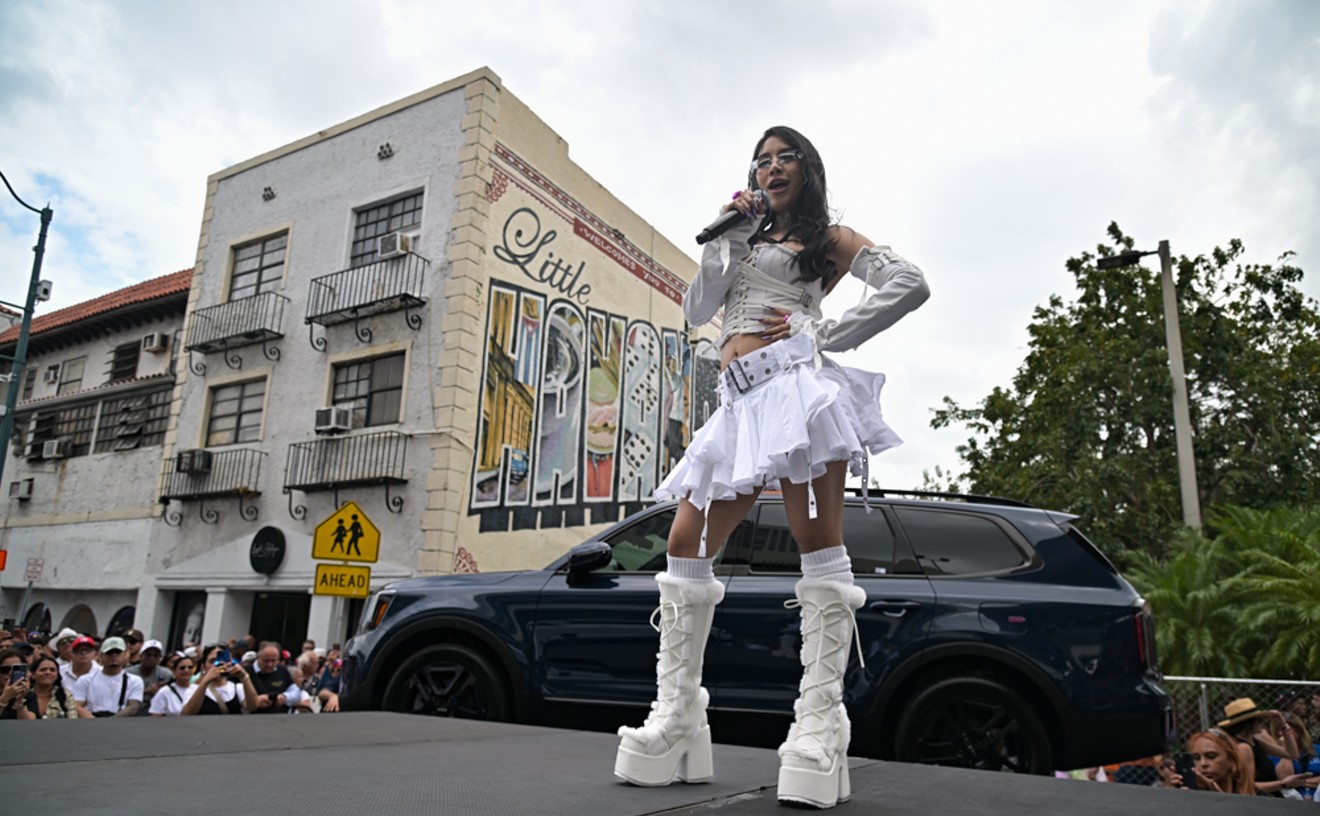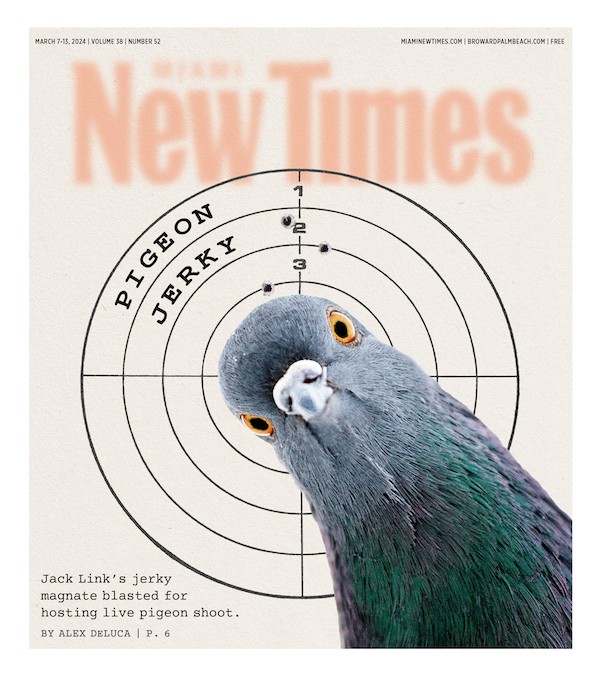Sampling is perhaps one of the oldest tricks in the book for any music producer. An exceptionally skilled one can take the sample and build upon it to create something that can distinguish itself from the original.
Miami-based producer Nii Tei's two-track EP, Disco Africa, in collaboration with Washington, D.C.'s Late London (AKA Rez Ekbatan), weaves Miami flavor and European flair together with the music of Tei's native Ghana.
"These tracks are old cuts from Ghanaian nightlife — I'm talking 1970s," Tei tells New Times. "I always wanted to propagate music from my country to be more well-known and heard. There are some that people may know, but I have so much music from my country that is nightclub-ready but makes people wonder where the original came from."
Some of the tracks Tei is referencing include "Disco Africa" by Ogyatanaa Show Band, released in 1976 and sampled by the legendary producer Madlib, and 1974's "Simigwado" by Gyedu-Blay Ambolley and the Steneboofs. "These guys are from my ethnic group. It felt right to pick these two," he points out.
Tei sprinkles some spice to the tracks, infusing them with Afro-house, a subgenre of house music that is melodic and deep and related to early tribal house music.
"Right around when my son was born, I wanted to put some stuff out, schedule some studio time, and a friend from D.C., Late London, he's done edits like this before, so I asked him to come to Miami and work on these tracks," Tei explains. "We removed some vocals; we didn't use everything in the original. We left a little bit to make people want to find the original and for it to feel like an original track."
The title track opens the EP, featuring a rolling bass that takes hold while bongos from the 1976 original sound in the background. The chorus sings out in Twi, a language spoken by Ghana's Akan population, "Eeeeew eeeeeey sa bi sa bi sa boo sa bi" ("Dance some, dance some, dance some.")
Tei's take removes the song's bridge, but the essence is preserved in amber. "These are my childhood music. This music has been around a little after Ghanaian independence in 1957," he adds.
Ambolley's rolling tongue and deep voice keep the EP's second track, "Simigwado," locked in rhythm. Tei and Ekbatan's synth work squeals a little louder this time around. The pair keep Ambolley's bass lines and bells to make the track feel as groove-inducing in 2023 as it must have in 1970s Ghana.
"The traction the EP is getting is unlike anything else," Tei says. "It's climbing up Beatport's top 100 Afro-house tracks. It's at 96, and that's something. It's gratification for the work you're doing."
The idea of Western producers creating and playing Afro-house and taking inspiration from music from Ghana and other African countries can be bittersweet. On the one hand, it can help shine a spotlight on non-Western music; on the other hand, it can feel like usurpation and cultural appropriation — serving as something to brag about for finding a "rare gem" to add to one's collection without much deference.
Tei, however, sees it as the only viable route to hear the music of his youth.
"One thing that surprised me was when I was listening to a track and was like, 'Yo, the vocals are from my language. Where did this Berlin DJ find this music?'" he says. "For me, I always appreciate that you have these European guys who know music so much that they go the extra mile to find music from all over the place. Ultimately, it's music, and we all borrow from each other."
Back when Tei's brother left Ghana, he left a stereo that Tei would use to blast reggae. When he moved to Tennessee in 2003 for college, Tei hunted down mixtapes, updated his playlists, and shared music with friends.
"Techno and electronic music wasn't so available," he says. "This was in Tennessee, but I asked my friend Jordan, who was into dubstep, which I wasn't keen on. When I moved to Miami in 2009, I was fresh in town. My coworker and I would play music back and forth. He went to play this long track, and I'm like, 'Why are you playing a one-hour song?' And he said, 'No, that's a DJ set.' So it was from there that I started to dig deep and fine-tune my taste."
Eventually, Tei took to DJing, and he has since played all over the country and regularly in Miami, including a monthly Thursday night party at Do Not Sit on the Furniture in South Beach. He's also set to spin at Factory Town in December as part of Rüfüs Du Sol's Rose Avenue showcase during Miami Art Week.
"I'm working on a collaborative EP with Dude Skywalker for the label Life On Planets," says Tei about his other upcoming projects. "I try not to create a bottleneck of upcoming projects. I try to do three to four projects a year and then shop them out."
With Disco Africa now out in the wild and shows scheduled through the rest of the year, the new father has put it all into perspective. "Everything aligns. It's all about the timing," he says.
Local Music
On Disco Africa, Nii Tei Delivers Ghanaian Music to the Dance Floor
Nii Tei's EP, Disco Africa, in collaboration with D.C.'s Late London, weaves Miami flavor and European flair together with the music of Tei's native Ghana.
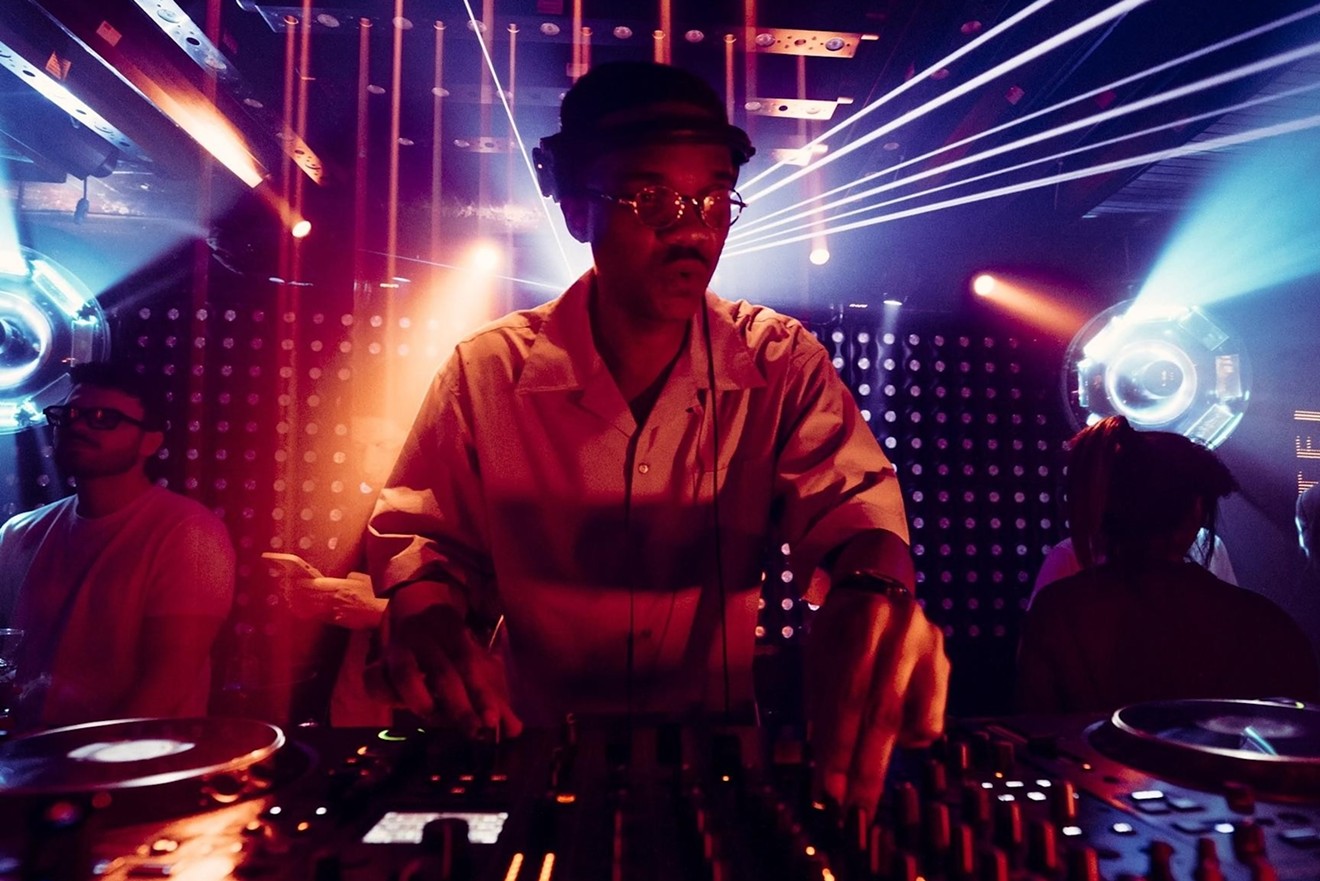
On Disco Africa, Nii Tei and his collaborator, Late London, pay homage to Tei's Ghanaian roots.
Photo by Atman Producciones
[
{
"name": "Editor Picks",
"component": "17482312",
"insertPoint": "4",
"requiredCountToDisplay": "1"
},{
"name": "Inline Links",
"component": "18711090",
"insertPoint": "8th",
"startingPoint": 8,
"requiredCountToDisplay": "7",
"maxInsertions": 25
},{
"name": "Air - MediumRectangle - Combo - Inline Content",
"component": "17482310",
"insertPoint": "8th",
"startingPoint": 8,
"requiredCountToDisplay": "7",
"maxInsertions": 25
},{
"name": "Inline Links",
"component": "18711090",
"insertPoint": "8th",
"startingPoint": 12,
"requiredCountToDisplay": "11",
"maxInsertions": 25
},{
"name": "Air - Leaderboard Tower - Combo - Inline Content",
"component": "17482313",
"insertPoint": "8th",
"startingPoint": 12,
"requiredCountToDisplay": "11",
"maxInsertions": 25
}
]


